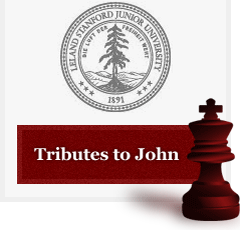Articles
Overcoming Unexpected Obstacles
Overcoming unexpected obstacles is a note written in 1992 and 1993 describing an important kind of elaboration tolerance. A plan is shown to work by reasoning involving circumscribing a predicate occurs(e,s) asserting that the event e occurs in situation s. If a sentence is added asserting the occurrence of an event that defeats the plan and the circumscription is done again, the plan can no longer be shown to work. In our example, a revised plan including an action that overcomes the obstacle can be shown to work. There is a bug in handling the circumscription that I have not fixed.The present note illustrates how logical formalizations of common sense knowledge and reasoning can achieve some of the open-endedness [now called elaboration tolerance] of human common sense reasoning.
A plan is made to fly from Glasgow to Moscow and is shown by circumscription to lead to the traveller arriving in Moscow. Then a fact about an unexpected obstacle---the traveller losing his ticket---is added without changing any of the previous facts, and the original plan can no longer be shown to work if it must take into account the new fact. However, an altered plan that includes buying a replacement ticket can now be shown to work. The formalism used is a modification of one developed by Vladimir Lifschitz, and I have been informed that the modification isn't correct, and I should go back to Lifschitz's original formalism. April 14,2001: I still haven't done it, so this article has to be regarded as tentative. I hope to fix the problems without going back to Lifschitz's formalism, which I find awkward.
Download the article in PDF.










